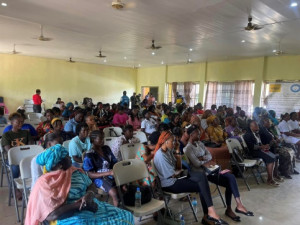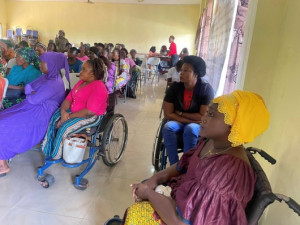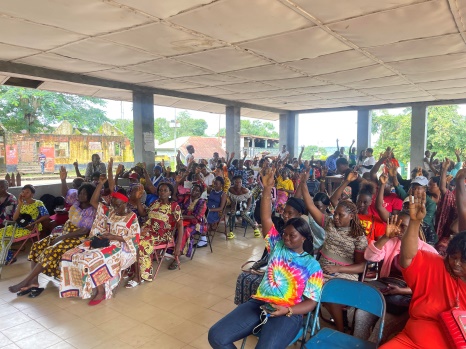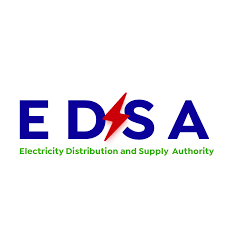By Foday Moriba Conteh
In an effort to facilitate discussions among women regarding the importance of the “Safe Motherhood and Reproductive Health Care Bill” 2024 and its potential impact on maternal and reproductive health in Sierra Leone, the People’s Alliance for Reproductive Health Advocacy (PARHA), in collaboration with the Centre for Accountability and Rule of Law – Sierra Leone (CARL-SL) with support from Amplify Change, concluded a series of regional stakeholder engagement meetings on Friday, August 2, 2024.
The engagement brought together influential women, female traditional authorities, opinion leaders and health workers to garner support for the bill. The final meeting took place in Makeni City for the Northern Region, following earlier sessions in Port Loko District for the North-West Region on July 31, Kenema District for the Eastern Region on July 29 and Bo District for the Southern Region on July 30 respectively.
Presenting the “Safe Motherhood and Reproductive Health Care Bill” 2024, in these engagement, Jeremy Ben Simbo, Head of Programs at the Centre for Accountability and Rule of Law (CARL-SL), focused on the key elements of the bill, which aims to establish standards for safe motherhood and reproductive health care across Sierra Leone.
He informed the gatherings that the Safe Motherhood and Reproductive Health Care (SM&RH) Act 2024 encompasses various critical provisions, including the definition of safe motherhood, the objectives of the Act and the services to be provided. Notably, the bill includes conditions for the safe termination of pregnancy, ensuring ministerial support for vulnerable women and children and mandates confidentiality for patients’ information.
He added that PARHA is implementing an Amplify Change-funded project to strengthen national advocacy for safe and legal termination of pregnancy and improve access to sexual and reproductive health rights (SRHR) for vulnerable populations, particularly young girls. The project aims to increase access to safe termination of pregnancy, reduce stigma and generate political will for reforming restrictive abortion laws.
Jeremy Ben Simbo pointed out that since 2018, PARHA has collaborated with the Ministry of Health and other development partners to draft the SM&RH Bill, which seeks to decriminalize safe termination of pregnancy and ensure access to high-quality reproductive health services. The bill is currently awaiting cabinet approval for gazetting and presentation to Parliament for enactment.
He stated that the SM&RH Act addresses various aspects of sexual and reproductive health rights, promoting access to safe motherhood services and emergency care while ensuring confidentiality and non-discrimination. It sets forth a framework for protecting and advancing reproductive health rights, ultimately aiming to reduce maternal and child morbidity and mortality.
Jeremy Ben Simbo said that key components of the bill include provisions for comprehensive maternal healthcare, sexual and reproductive health education and the right to informed consent. The bill emphasizes that everyone should have access to safe motherhood services, regardless of their background, while protecting individuals from discrimination.
With the aim of ensuring dignified and respectful treatment, the Act requires healthcare providers to obtain informed consent from responsible adults in specific cases, while still safeguarding the autonomy of individuals seeking reproductive health services and that through this legislative initiative, the bill aims to foster an environment conducive to safe motherhood and improve overall reproductive health outcomes in Sierra Leone.
He concluded by discussing the various categories of women the bill provides for in terms of safe and legal termination of pregnancy. The first category includes pregnant women diagnosed with ectopic pregnancies, where medical practitioners have determined that continuing the pregnancy poses a risk to the woman’s life; with her consent, the pregnancy will be terminated.
The second category encompasses pregnant women whose pregnancies result from incest; for instance, if a father impregnates his daughter, the pregnancy will be terminated with the woman’s consent.
Finally, the bill also allows for the termination of pregnancies that result from any form of rape, again with the woman’s consent.
The women gathered at the regional stakeholder engagement meetings expressed overwhelming support for the “Safe Motherhood and Reproductive Health Care Bill” 2024, emphasizing its critical importance in addressing maternal and reproductive health issues in Sierra Leone. They commended the bill for its comprehensive provisions aimed at safeguarding the rights and well-being of women, particularly in cases of ectopic pregnancies, incest and rape.
Opinion leaders highlighted the bill’s potential to transform maternal healthcare in the country by promoting safe practices and reducing the stigma surrounding reproductive health issues. They stressed that timely access to reproductive health services is vital for the safety and dignity of women, urging Parliamentarians to act swiftly in enacting the bill as soon as it is presented. They expressed a unified call for lawmakers to recognize the bill as a necessity, not a luxury, in modern governance.
Health workers echoed this sentiment, emphasizing the bill’s alignment with public health goals. They expressed optimism that the bill would enhance healthcare delivery by providing clear guidelines and protections for both patients and providers.
Health workers underscored the importance of training and resources to support the implementation of the bill, advocating for an increase in awareness campaigns to educate the public about the rights and services available under the new legislation.
Deputy Chairpersons of Local Councils also lent their voices to the support for the bill, recognizing its significance in fostering community health and well-being. They emphasized the need for local leadership to champion women’s health issues and ensure that the provisions of the bill are effectively communicated and implemented within their constituencies.
They committed to collaborating with health officials to create community programs that promote safe motherhood and reproductive health education, particularly for vulnerable populations.
Deputy Mayors from the regions expressed strong endorsement for the bill, recognizing its pivotal role in improving the quality of life for women and families in their communities. They highlighted that the passage of the bill would not only enhance maternal health services but also contribute to the overall socio-economic development of their municipalities.
The Deputy Mayors stressed the importance of local governance in the implementation of the bill, promising to allocate resources and support initiatives that align with its objectives, calling upon their peers in parliament to prioritize the bill, stating that it reflects the community’s needs and aspirations for better health outcomes.
The attendees including Deputy Mayors, Deputy Chairpersons of Local Councils, collectively urged His Excellency President Julius Maada Bio to sign the bill into law once it is enacted by Parliament, recognizing that this legislative action would mark a significant step forward in advancing women’s health rights in Sierra Leone. They reaffirmed their commitment to advocating for this vital bill, emphasizing that its passage would reflect a progressive move toward a healthier and more equitable society for all women.
















